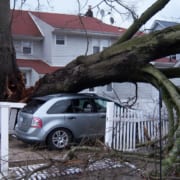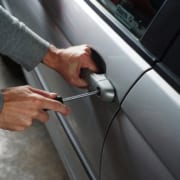From a dry Christmas tree adorned with 20-year-old lights to a set of drapes dangling near a faulty heater, fire risks seem ubiquitous this time of year. With the holiday season around the corner, it’s the perfect time to address leading causes of house fires and how to prevent them. For the #1 most common source of house fires, look no further than the kitchen.
When it comes to purchasing insurance, most of us probably focus on auto, homeowners, and health coverage. After all, damage to our cars, our houses, and our wellness can cause catastrophe financial woes. With Halloween just around the corner, we thought we’d highlight some unusual, even weird, insurance policies that you probably didn’t know existed.
Many drivers assume that their auto insurance policies cover a lot more than they actually do, and they only learn the truth after their claims are denied by their insurance carriers. If you’re unsure what your policy does and does not cover, it’s best to go over your insurance agreement with a qualified agent. However, here are some of the more common auto insurance exclusions.
According to the National Highway Traffic Safety Administration (NHTSA), 773,139 cars were reported stolen in 2017—that’s one report every 40.9 seconds. On average 59.1% of locally-stolen vehicles are recovered, though their conditions can vary greatly. If your car was stolen, would you know what to do? Here are the general steps you should follow.
You’ve no doubt heard someone say “Sitting is the new smoking.” Numerous studies have shown the detriments of a sedentary lifestyle: increased risk for back problems, osteoporosis, obesity, heart disease, diabetes, and some types of cancer, even double of the risk of premature death. Though office work won’t be found on any top 10 lists of most dangerous jobs, the negative impacts of too much sitting are detrimental to both employees and employers—the cost of absenteeism and extra health care due to the workers’ sedentary-related health problems runs into the billions each year. But sitting too much isn’t the only cause of poor health in office workers.
Do you heat with oil? Are you still using a black steel tank to store that oil? A leaking heating oil storage tank is not an issue to be taken lightly. The results could be catastrophic for you and your family.
Getting a good deal on your homeowners and auto insurance premiums—while carefully ensuring the proper coverage for your most precious assets—is every consumer’s goal. These types of insurance policies protect some of the most important possessions in our lives, so deciding to be sufficiently covered and yet save money is a worthy task. One of the most common ways to reduce the costs of insurance is through bundling. While doing this, it is also a great time to review if changing your deductible will make sense for you as well to help reduce your premiums.
The saying goes that an ounce of prevention is worth a pound of cure. And while a carefully crafted Cyber Liability policy can protect you from significant financial loss in the event of a cyber attack or data breach, it’s best to protect your company proactively through cyber security protocols. In fact, some insurance providers may insist that you have security measures in place before they will underwrite a policy for your business.
With over 100,000 registered commercial drone operators in the US, it’s not surprising that the use of drones has transformed many industries. Houses with aerial photographs sell 68% faster than ones without. Drone usage on construction sites has increased safety by 55%. Because drones can cover large areas quickly and provide access to locations otherwise not easily reached, they’re increasingly being deployed for tasks like agricultural inspections and search-and-rescue missions. Drones have impacted everything from humanitarian aid and weather forecasting to wedding videography and food delivery.
10 Ways to Prevent Frozen Pipes & Avoid Costly Insurance Claims
Frozen water pipes and the damage they cause are a reality for thousands of people each year. And unfortunately, a burst pipe can cause more than $5,000 in water damage, according to the Insurance Institute for Business & Home Safety. Luckily, there are steps you can take to prevent pipes from freezing.
63 Main Street
Easthampton, MA 01027










